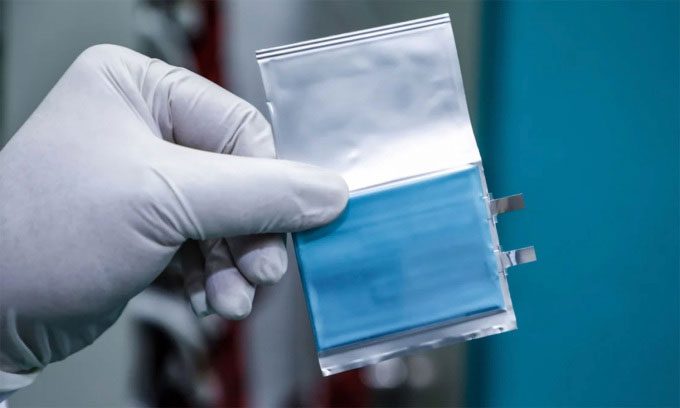Chinese Scientists Develop New Electrolyte for Lithium-Ion Batteries to Function Effectively at Extremely Low Temperatures.
Lithium-ion batteries currently dominate the battery market primarily due to their lightweight nature relative to their energy storage capacity. This makes lithium-ion batteries incredibly valuable for laptops, smartphones, and electric vehicles. However, a significant drawback is that as temperatures drop, they charge more slowly and store less energy. The issue lies with the electrolyte of the battery.

The new electrolyte can accelerate charging speed and increase the operating temperature range for lithium-ion batteries. (Photo: Zhejiang University)
A research team led by Professor Xiulin Fan at Zhejiang University has developed a new electrolyte that allows lithium-ion batteries to charge and operate at temperatures as low as -80 degrees Celsius, reported IFL Science on March 5. The new research has been published in the journal Nature.
Current electrolytes can transport lithium ions and interact with the graphite anode at around 25 degrees Celsius, but both capabilities diminish at lower temperatures. High-concentration electrolytes and some other alternatives do not freeze at the interface of the anode, but they are thicker and carry less charge, reducing performance under normal conditions.
Xiulin Fan’s research team explored the performance of various solvents and discovered three solvents with ultra-small molecules that can create transport channels for Li+ ions, facilitating faster ion movement. While two of these did not meet other essential criteria for battery electrolytes, the remaining solvent, fluoroacetonitrile, appeared to meet all necessary standards. The small solvent molecules in the electrolyte form two shells around the lithium ions, both of which are smaller and more easily transportable than the layers in dilute carbonate electrolytes.
Batteries using fluoroacetonitrile exhibit superior ion conductivity at room temperature and perform well in temperature ranges from -80 degrees Celsius to 60 degrees Celsius. At -70 degrees Celsius, its performance surpasses several alternatives by approximately 10,000 times. This new battery maintains performance for over 3,000 charge-discharge cycles at a temperature of 6 degrees Celsius. Fan noted that the battery can achieve 80% capacity when charged for just 10 minutes.
According to Fan’s team, this new technology could be generalized and expanded to other metal-ion battery electrolytes. This advancement will benefit grid operators in cold regions who need to balance energy production during winter.


















































